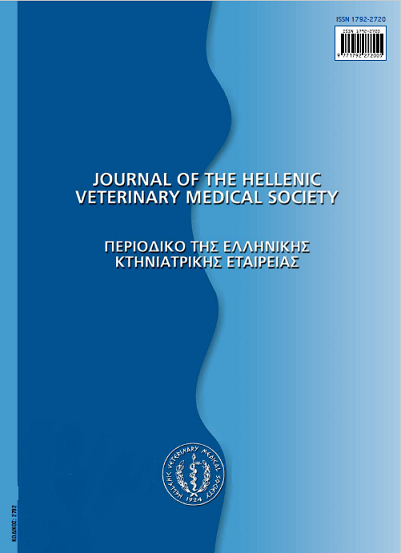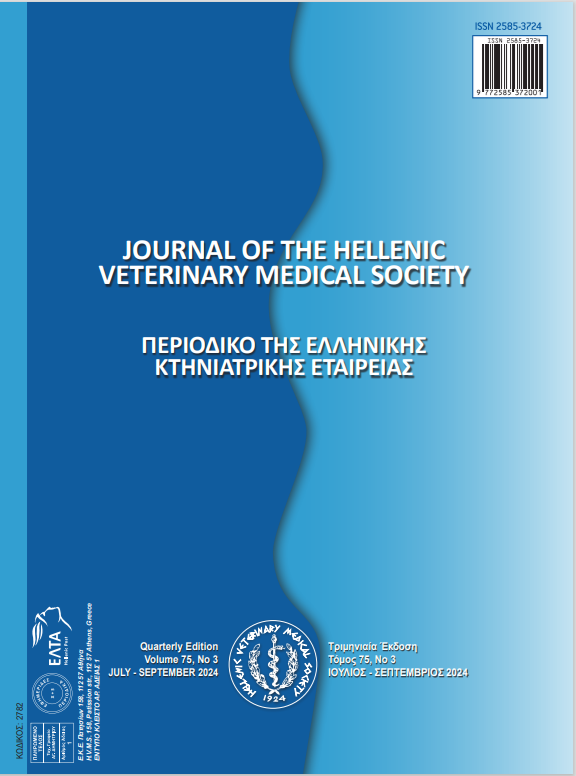Non-metastatic ileal leiomyosarcoma in an aged pouter pigeon (Columba livia)
Resumen
Intestinal smooth muscle neoplasms are rarely reported in avian species. An aged male pouter pigeon (Columba livia) had anorexia, somnolence, progressive emaciation and yellowish diarrhea of four days’ duration and died despite antibiotic and antiparasitic treatment. At necropsy, the ileum bore a whitish, nodular, 0.8 cm in diameter mass severely narrowing the lumen. Histopathologically, the ileal mass was a well-demarcated, expansile neoplasm severely expanding the tunica muscularis and invading the mucosa. The neoplasm was composed of densely packed spindle cells with elongated nuclei arranged in broad interlacing bundles, and showing mild anisocytosis and anisokaryosis. Immunohistochemically, the neoplasm was positive for desmin and smooth muscle actin, and negative for cytokeratin, and c-kit. The gross, histopathologic and immunohistochemical findings provided the diagnosis of ileal leiomyosarcoma. This is the first report of an ileal leiomyosarcoma in Columbiformes and one of few intestinal smooth muscle neoplasms described in birds.
Article Details
- Cómo citar
-
GORNATTI CHURRIA, C., & LOUKOPOULOS, P. (2018). Non-metastatic ileal leiomyosarcoma in an aged pouter pigeon (Columba livia). Journal of the Hellenic Veterinary Medical Society, 68(4), 675–680. https://doi.org/10.12681/jhvms.16073
- Número
- Vol. 68 Núm. 4 (2017)
- Sección
- Case Report

Esta obra está bajo una licencia internacional Creative Commons Atribución-NoComercial 4.0.
Authors who publish with this journal agree to the following terms:
· Authors retain copyright and grant the journal right of first publication with the work simultaneously licensed under a Creative Commons Attribution Non-Commercial License that allows others to share the work with an acknowledgement of the work's authorship and initial publication in this journal.
· Authors are able to enter into separate, additional contractual arrangements for the non-exclusive distribution of the journal's published version of the work (e.g. post it to an institutional repository or publish it in a book), with an acknowledgement of its initial publication in this journal.
· Authors are permitted and encouraged to post their work online (preferably in institutional repositories or on their website) prior to and during the submission process, as it can lead to productive exchanges, as well as earlier and greater citation of published work.




